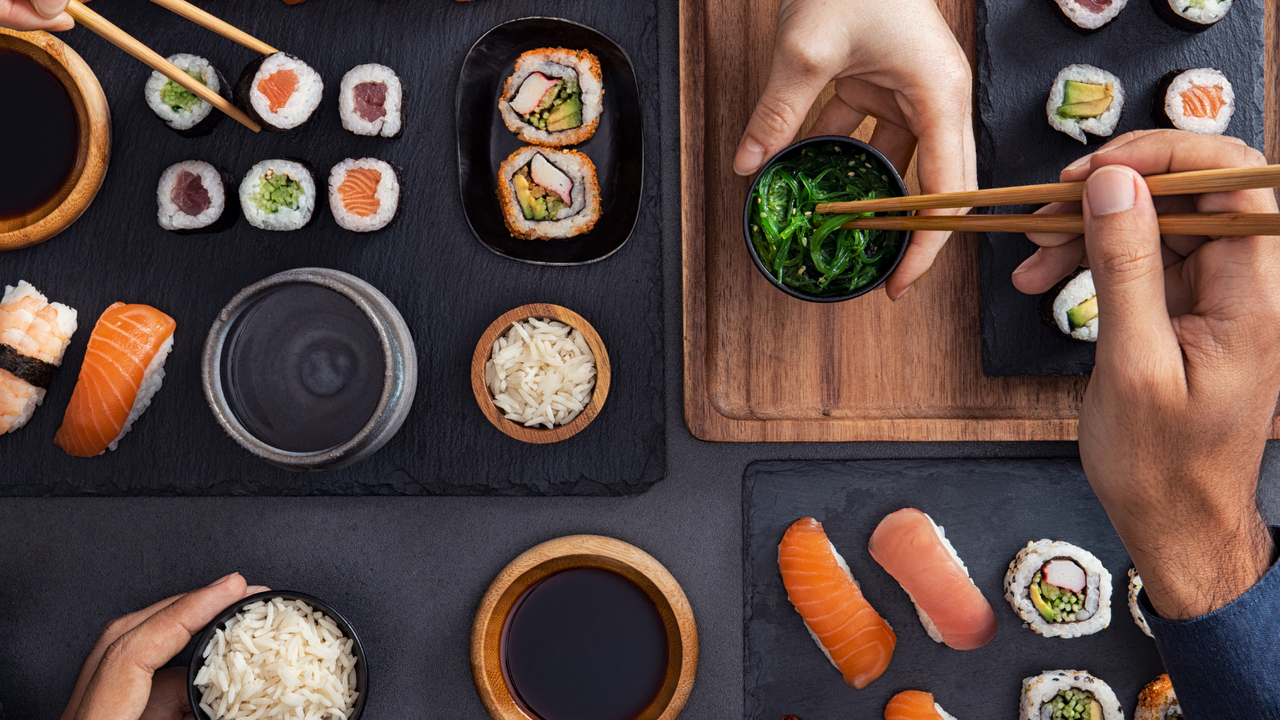Eat out without the guilt

Food is a vitally important part of every day of our lives, and every meal is an opportunity to choose sustainability. Whether it be buying Fairtrade products, reducing food waste, supporting local producers, or reducing meat consumption, we do our best to eat sustainably. When we decide to eat out, we want to know if the restaurants we support are doing the same. Enter Green Restaurant Certifications.
These certifications assess factors such as water efficiency, sustainable food, energy, and waste reduction to determine whether or not the establishment meets the requirements to be certified green. Green Restaurant Certifications are a great way to help identify restaurants in the community that are striving to promote sustainability so that we can support their efforts while enjoying a delicious meal. In North America, the Green Restaurant Association and LEAF Certification assess restaurants to determine their level of sustainability and then publish these results on their websites for easy access to consumers.
Environmental Impacts of the Restaurant Industry

According to waste research company WRAP, the food service and hospitality industry generates 2.87 million tons of waste per year. Only 45% of this waste is recycled or composted, and the majority ends up in landfills. Food waste accounts for 1 million tons of this waste, and it is estimated that 75% of this food waste is avoidable. That means that with better management practices in place, most of the wasted food could actually be avoided. The rest of the waste is made up primarily of disposable items, such as single-use plastics for takeout containers.
Although the restaurant industry has significant environmental impacts, there are many solutions that can be implemented to reduce waste and improve sustainability. With one-third of all food produced for humans wasted, food waste is one of the most significant issues restaurants can strive to address. The vast majority of food waste is not due to spoiled or contaminated food, but rather poor policies and management practices that result in edible food going to waste.
Restaurants can limit the food waste they produce by partnering with local food banks to donate extra food before it expires, partnering with local vendors to reduce travel time and the opportunity for food to be damaged during transport, purchasing appropriate amounts of inventory that can be used before expiring, and optimally, providing portion sizes that result in less food waste.

In terms of disposable items, using compostable containers is a step in the right direction, however; limiting single-use packaging and utensils is the most effective solution regardless of what material they are - because, the most sustainable material is no material at all!
Many compostable or biodegradable materials require industrial composting, which uses large amounts of energy and isn't available in every city. When these materials end up in the landfill instead of composting facilities, they release methane gas, a potent greenhouse gas. Then there is the confusing terminology of biodegradable plastics versus compostable plastics. The short rundown is that biodegradable plastics may still contain harmful components, so we should opt for compostable, but for more on that, head over to Episode 60 The Plastic Problem.
Since there are so many nuances to determining how sustainable a restaurant is, it is almost impossible to do by yourself; this is why independent restaurant certifications are so handy!
Green Restaurant Association

Active since 1990, the Green Restaurant Association (GRA) is a nonprofit organization that has developed standards that are used to measure a restaurant’s environmental accomplishments while also outlining a path forward to further improve sustainability. The Green Restaurant Certification is given to restaurants in the USA if they prove to be sufficiently environmentally friendly in the eight categories assessed:
- Water Efficiency,
- Waste Reduction and Recycling,
- Sustainable Durable Goods and Building Materials,
- Sustainable Food, Energy,
- Reusables and Environmentally Preferable Disposables, and
- Transparency and Education.
GRA certification is made up of over 500 environmental standards, covering everything from napkin material to insulation, so you can be sure that GRA-certified restaurants have been thoroughly assessed. Over 1,000 restaurants in the USA have participated in this program.

There are four different levels of certification, which encourage businesses to continue to upgrade to more sustainable practices over time. GRA certification is also available for restaurant employees to help them drive the shift to more sustainable practices in the restaurant industry. The GRA website allows you to filter certified restaurants by cuisine type, certification level, and location, to help you find a Green Restaurant near you.
LEAF Restaurant Certification

LEAF recognizes the impact the Canadian food service industry has on our environment in the form of food and water waste, excess packaging, chemical use, and transportation emissions. Similar to the Green Restaurant Association, LEAF Restaurant Certification assesses Canadian Restaurants according to 10 key areas of sustainability: Energy use, Food purchasing and menu items, Supplies, Building and location, Furnishing and decorative items, Chemicals Waste and recycling, Employees, Policy and innovation, and Water use.

LEAF Certification has three different levels based on how restaurants perform in each of the ten categories, and the criteria within each category are updated every year to reflect the latest data in environmental science as well as the changing issues that the food service industry faces. Founded in 2009, LEAF is Canada’s only nonprofit food service certification program and has now worked with over 100 restaurants across Canada. A list of LEAF Certified establishments can be found on the LEAF website.
Sustainable Restaurant Association

In the UK, the Sustainable Restaurant Association (SRA) strives to move towards an environmentally restorative and socially progressive hospitality industry. The SRA’s main initiative is the Food Made Good program, which provides members with a sustainability framework, resources, and annual awards to help them source and serve sustainable food. Food Made Good was launched in 2010, and has now expanded to over 10,000 food service sites.
The SRA focuses on 3 pillars of sustainability when assessing restaurants: Sourcing, Society, and Environment.
Establishments are encouraged to support fairly traded produce, use local produce in season, treat staff fairly, support their communities, and limit food waste, among others. When establishments meet these requirements as outlined by the SRA, they become members of the organization and are listed on the SRA website. Members are encouraged to continue to strive to become more sustainable with guidance, resources, and frameworks.
Green Seal
Green Seal is a global non-profit organization that was founded in 1989 with a mission to transform the economy to create a healthier world. By setting standards for health, sustainability, and product performance, Green Seal works to create a shift towards more sustainable practices. Green Seal restaurant certification is based on four categories: Sustainably sourced food, waste minimization, use of environmentally preferred products, and conservation of energy and water. Certified restaurants can be found on the Green Seal website.

In addition to certifying restaurants, Green Seal certification is also available for products, cleaning services, and hotels. Certified products range from food packing to construction materials, and for cleaning products to building equipment. While Green Seal certification for restaurants and hotels is currently only applied in the USA, certified products are available around the world.
Green restaurant certifications take the guesswork out of determining how sustainable our favourite local restaurants are, and can help us find businesses to support that we know share our values when it comes to sustainability. The next time you are going out to eat, check out the above certification sites to see if any restaurants in your area are green certified, and go enjoy some delicious food while supporting sustainable practices!
If your favourite restaurant is not green certified, you may want to engage in a conversation with them about their practices in these areas. I know that most business owners really do want to know how they can best align with and serve their patrons.
In addition, you can always adjust your own behaviours when it comes to dining out. Choosing local rather than chains is often a good start, and simply avoiding wasting your food by ordering portions that work for you or actually eating those leftovers that you carried home!
We can also do a lot to reduce our greenhouse gas emissions by choosing less meat and dairy and focusing on plants in our diet. Most of all though, dining out can be a wonderful time with friends and loved ones - and living out your values by choosing sustainability not only feels great, it also allows you to lead by example for those around you.
ENJOY!
Stay connected with news and updates!
Join my mailing list to receive the latest news and updates. Your information will not be shared.


